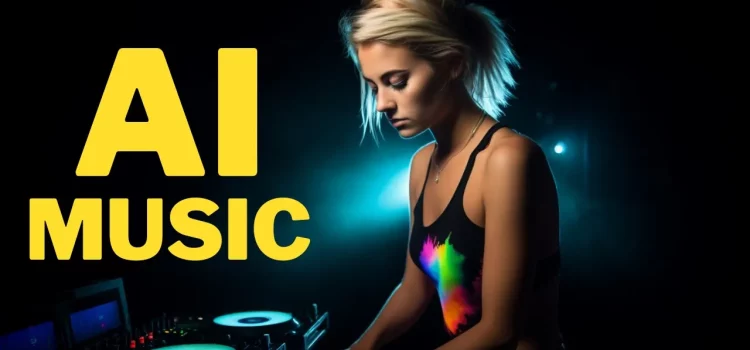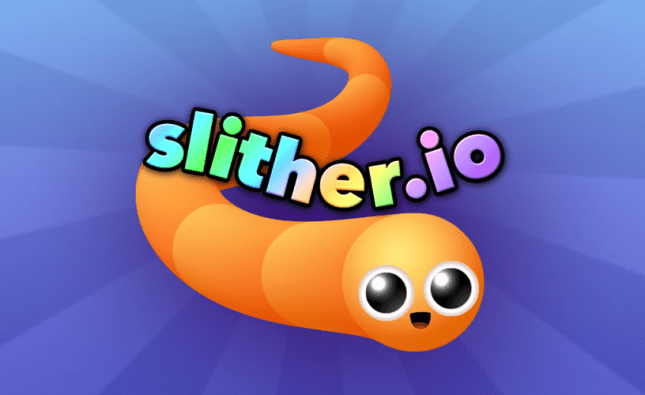
Introduction
As artificial intelligence (AI) continues to revolutionize various industries, music production has been one of the most exciting areas to witness its impact. AI music generators can now compose, arrange, and produce music, offering unprecedented opportunities for artists, content creators, and hobbyists alike. In this article, we’ll explore the top 7 AI music generator tools of 2024, comparing their key features, strengths, and areas where they shine. Whether you are a professional musician or someone who loves experimenting with sounds, these tools will inspire your creativity.
What is an AI Music Generator?

An AI music generator is a tool that uses artificial intelligence to create music. These tools can automatically compose tunes, beats, and melodies without much effort from the user. Many of them allow users to select a mood, genre, or instrument, and the AI does the rest. In 2024, AI music generators are more powerful than ever, making it easy for anyone to create professional-quality music, even without a background in music production.
How AI Music Generators are Changing the Music Industry
AI music generators are changing the way music is made. They allow people to make music faster and at a lower cost. Musicians, producers, and content creators are using these tools to speed up their work, while hobbyists can make music without needing formal training. This technology is also helping brands, influencers, and businesses find custom-made background music for videos, ads, and presentations without needing to hire a composer or buy expensive software.
Why AI Music Generators are Popular in 2024
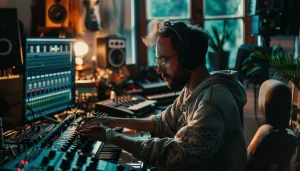
The rise of social media platforms, YouTube, and podcasts has led to a higher demand for music. Many creators need music for their content but don’t have the time, budget, or skills to produce it themselves. AI music generators offer an easy solution. With just a few clicks, users can create custom music that fits their style or project. These tools are also becoming popular because they’re often cheaper and faster than traditional methods of music production.
Who Can Use AI Music Generators?
AI music generators are designed for everyone, from professional musicians to casual users. Content creators can use them to add music to their videos or podcasts, while marketers can use them to make jingles or background tracks for ads. Even someone with no musical experience can use AI tools to make fun and unique music for personal use. Many of these platforms have simple interfaces, making them easy to navigate, even for beginners.
How AI Music Generators Save Time
One of the main reasons people love AI music generators is how much time they save. Instead of spending hours writing or producing a song, these tools can create music in just a few minutes. For content creators and businesses, this is a huge benefit. You can generate background music for a video, podcast, or ad quickly without waiting for a composer or spending hours in a studio.
The Benefits of Using AI Music Generators
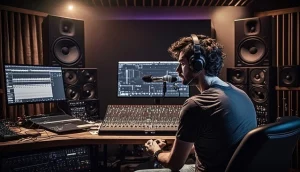
One of the biggest benefits of AI music generators is convenience. They allow users to create music in minutes, which is perfect for people who need quick results. AI music generators are also cost-effective, as many offer affordable pricing or even free versions. In addition, AI can produce music in many different styles and genres, giving users a wide range of options for any project. Lastly, since many AI tools offer royalty-free music, users can legally use their creations in commercial projects.
AI Music Generator Tools 2024
1. Amper Music
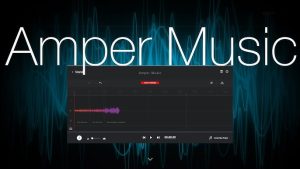
Amper Music has gained popularity as one of the most user-friendly AI music generators. With a simple interface and a large library of sound styles, it allows users to create professional-grade music without needing advanced knowledge of composition. The tool offers customizable parameters for tempo, mood, and instrumentation, making it ideal for content creators looking for background music or anyone who needs royalty-free music quickly.
2. Aiva
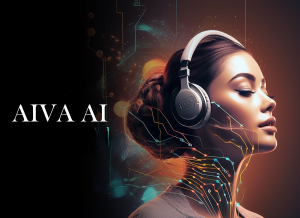
Aiva is a highly sophisticated AI music tool, known for its ability to compose classical music. Used by both professionals and beginners, it is excellent for creating symphonies, soundtracks, or pieces that mimic the style of famous composers. Aiva’s AI has been trained on historical music data, making it a powerful tool for composers who want to blend human creativity with AI precision.
3. Soundraw
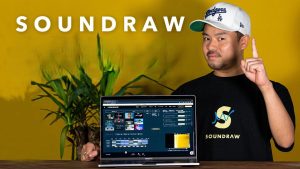
Soundraw is perfect for those seeking a balance between AI automation and creative control. It allows users to generate music in real time based on their inputs, then further customize the results. This tool is particularly popular for generating background music for videos, podcasts, and commercials. Soundraw’s licensing options ensure that users can produce music legally for various media.
4. Ecrett Music

Ecrett Music stands out for its simplicity and affordability. It’s designed for users who want to create music for personal projects or small commercial purposes. With predefined scenes, emotions, and genres, Ecrett lets you mix and match to produce the perfect track in minutes. It’s great for YouTubers, streamers, and small business owners looking for background music without needing in-depth music skills.
5. Boomy

Boomy is unique in that it allows users to generate, share, and even release their AI-generated music commercially. Users can upload tracks to major streaming platforms like Spotify and Apple Music, making it possible to earn royalties from their creations. This feature sets Boomy apart from other AI music generators and makes it an exciting option for aspiring musicians and creators looking for monetization opportunities.
6. Jukedeck (Now part of TikTok’s Sound System)

Jukedeck was an early player in the AI music generation space, and its acquisition by TikTok has taken its functionality to a new level. With TikTok’s vast library of short-form video content, Jukedeck’s integration allows creators to generate unique, high-quality music clips for their videos. While primarily geared towards TikTok users, the tool’s advanced AI engine is still one of the most powerful music generation systems available.
7. OpenAI’s MuseNet

MuseNet, developed by OpenAI, is one of the most advanced AI music generators. It can generate complex compositions that blend styles from different eras and genres, offering a high level of versatility. The AI can handle music composition for over 10 instruments, making it suitable for symphonies, pop music, jazz, and more. MuseNet is particularly suited for musicians who want to experiment with genre fusion or large-scale compositions.
AI Music for Different Needs
AI music generators are very flexible. They can create music for different purposes, whether you need a catchy tune for a YouTube video, relaxing background music for a podcast, or even a full song for your project. Some tools allow users to pick the mood, style, and instruments they want, making it easy to customize the music for any project. From pop to classical, AI music generators cover all genres.
Easy to Use for Everyone
Even if you have no experience in music, AI music generators are designed to be user-friendly. Most of these tools come with simple interfaces that guide you step by step. You don’t need to know how to play an instrument or read music. Just choose what you like, and the AI does the work for you. This makes creating music easy for anyone, whether you’re a professional or a beginner looking to have fun with sounds.
The Future of AI in Music
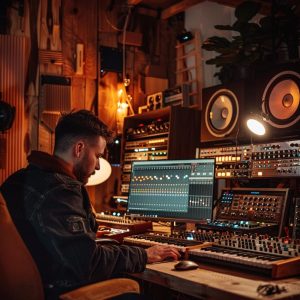
As AI technology improves, music generators are expected to become even more advanced. They will likely be able to produce more complex and diverse music in the coming years, helping both professionals and amateurs create better content. AI may also play a bigger role in live music, where musicians can use it to create dynamic performances on the spot. The future of music could be a blend of human creativity and AI innovation, giving rise to new forms of expression.
Comparative Table
| Tool | Best For | Genres | Key Features | Pricing |
|---|---|---|---|---|
| Amper Music | Content creators | All genres | Simple UI, large sound library | Subscription-based |
| Aiva | Classical composers | Classical, orchestral | Classical music focus, complex arrangements | Free & Paid versions |
| Soundraw | Video and podcast creators | Background music | Real-time generation, customizable track elements | Subscription-based |
| Ecrett Music | Casual creators | All genres | Scene-based music generation, affordable pricing | Subscription-based |
| Boomy | Aspiring musicians | Pop, EDM, Lo-fi | Monetize and release music, user-friendly | Free & Paid versions |
| Jukedeck | TikTok creators | Short-form, viral music | TikTok integration, AI-driven music generation | Free with TikTok use |
| MuseNet | Experimentation, professionals | Multi-genre | Genre fusion, large compositions, advanced AI engine | OpenAI free access |
Analysis Table
| Tool | Ease of Use | Customizability | Best Suited For | Strengths | Weaknesses |
|---|---|---|---|---|---|
| Amper Music | High | Medium | Quick content creation | Intuitive interface, sound variety | Limited advanced editing options |
| Aiva | Medium | High | Classical compositions | Sophisticated orchestral creation | Not ideal for modern genres |
| Soundraw | High | High | Podcasts, videos | Customizable elements, fast generation | Limited music genres |
| Ecrett Music | Very High | Low | Hobbyists and small creators | Easy to use, affordable | Basic music options |
| Boomy | High | Medium | Aspiring musicians | Music monetization, broad genre support | Limited customization options |
| Jukedeck | High | Medium | TikTok users, short-form music | Great for short content, TikTok sync | Geared towards short-form content |
| MuseNet | Medium | High | Advanced composers | Multi-instrument, genre fusion | Requires more technical knowledge |
Conclusion
AI music generators in 2024 offer a wide range of options, catering to different needs and skill levels. Whether you are looking for quick background music or composing a full symphony, these tools provide a vast spectrum of possibilities. From simple drag-and-drop interfaces like Amper Music to the complex genre-bending capabilities of MuseNet, AI is transforming how music is created and experienced.








